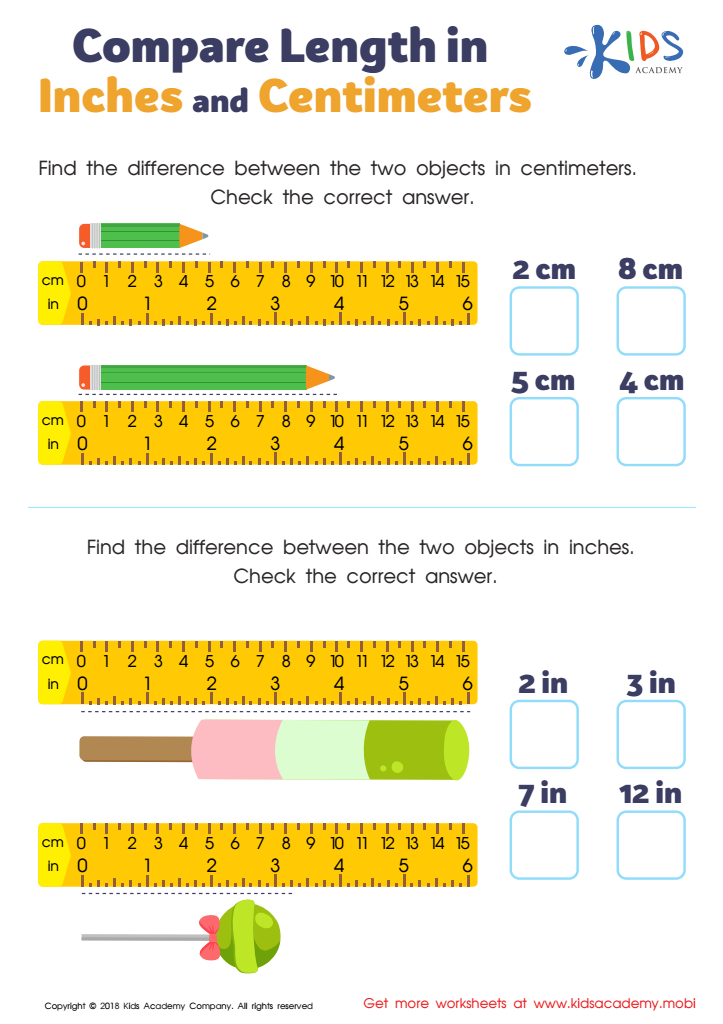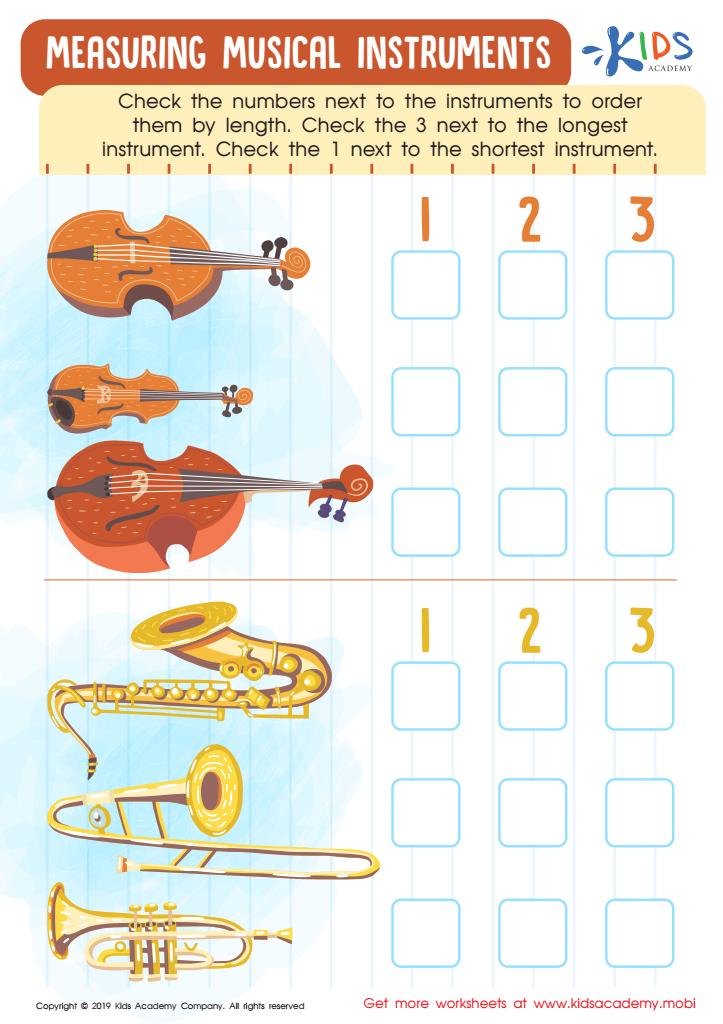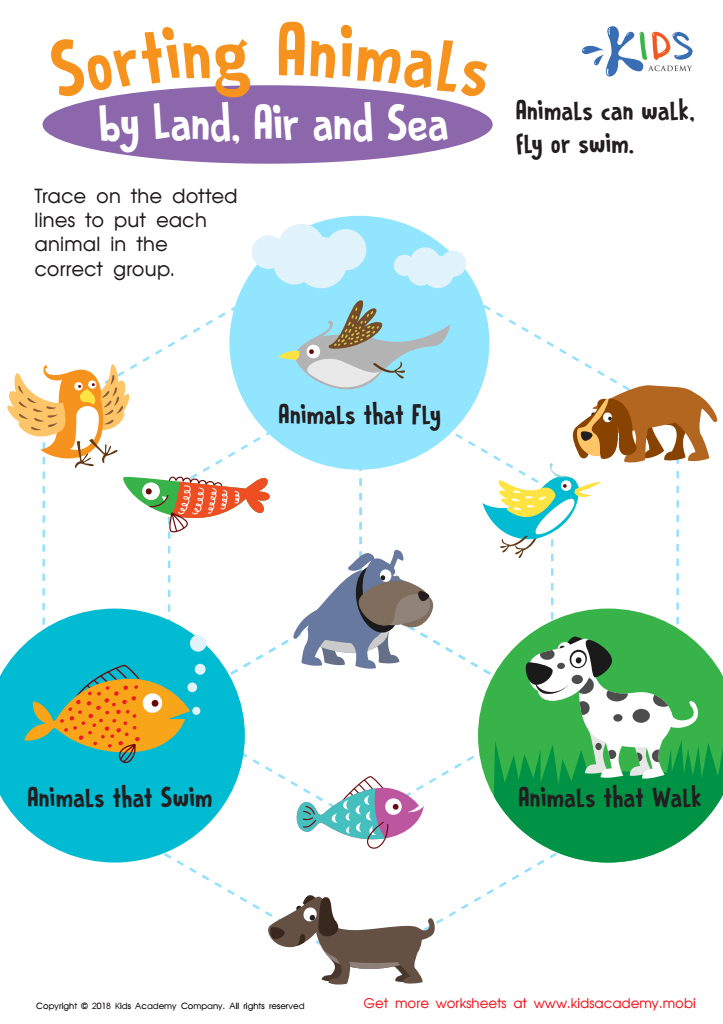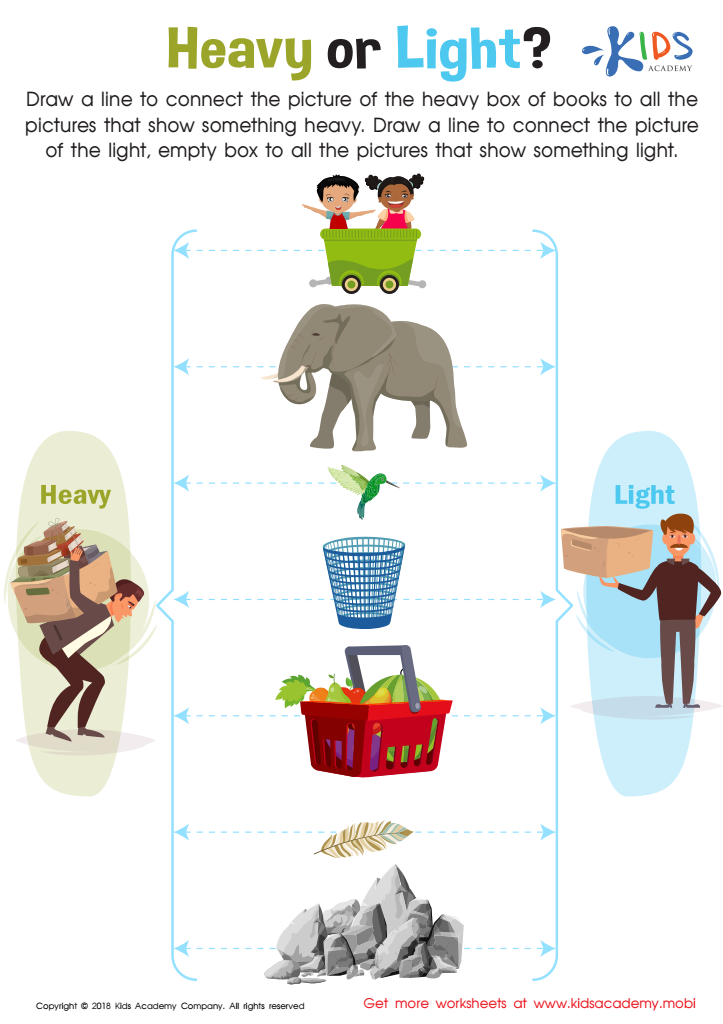Enhancing observation skills Normal Math Worksheets for Ages 4-8
5 filtered results
-
From - To
Enhancing observation skills with our meticulously crafted Normal Math Worksheets for ages 4-8 helps young learners develop critical thinking and analytical abilities. Our engaging activities, tailored for early education, offer a blend of colorful graphics, fun patterns, and stimulating puzzles. These worksheets are designed to capture your child's interest, making math fun while subtly honing their attention to detail. Curated by experienced educators, each worksheet focuses on fostering an early love for learning, ensuring foundational concepts in numeracy are grasped. Perfect for both classroom and home learning, our resources provide an enjoyable pathway to academic success for young minds.


Compare Length in Inches and Centimeters Worksheet


Pollinator Positions Worksheet


Measuring Musical Instruments Worksheet


Sorting Animals by Land, Air and Sea Worksheet


Heavy or Light? Worksheet
Enhancing observation skills in young children, particularly within the context of normal math, is critical for their overall development and sets a strong foundation for future learning. For ages 4-8, observation skills help children notice patterns, differences, and sequences, which are fundamental to understanding basic math concepts. When children practice observing their surroundings, they become more adept at identifying shapes, counting objects, and understanding spatial relationships.
Furthermore, enhanced observation skills support critical thinking and problem-solving abilities. As children learn to pay attention to details, they also improve in recognizing key information, making connections, and drawing inferences. This attentiveness translates into better performance not only in mathematics but also across other subjects.
From a behavioral perspective, children with sharp observational skills are often better at following instructions and more engaged learners. They can pick up on cues from teachers and peers, facilitating smoother social interactions and collaboration in group settings.
Parents and teachers play a vital role in fostering these skills by providing a rich environment filled with opportunities for exploration and discovery. Simple activities like sorting toys, counting everyday items, or playing pattern-recognition games can be both fun and educational. By prioritizing the enhancement of observation skills, parents and teachers ensure that children develop a keen mind that is well-prepared for the challenges of formal education and beyond.
 Assign to My Students
Assign to My Students




















